In its annual report released on November 19, 2024, the U.S.-China Economic and Security Study Commission recommended the launch of an AI version of the Manhattan Project in order to compete with China. The plan envisions a national project in the field of artificial intelligence (AI) comparable to the Manhattan Project, which promoted the development of the atomic bomb during World War II. As China invests heavily in AI technology development and strengthens its dominance in the economic and military fields, how the U.S. should counter this is currently the main focus of the project.
This article details the background and importance of the AI version of the Manhattan Project, and delves into the impact of this proposal and the current state of economic competition between the United States and China. It also examines the impact of AI technology on economic security and military strategy, as well as new challenges for the international community, looking at the possibilities offered by the evolution of AI technology and the underlying risks, while looking at the significance of this plan and its future.
What is AI's Version of the Manhattan Project? Technology News and Investment Perspectives Explained
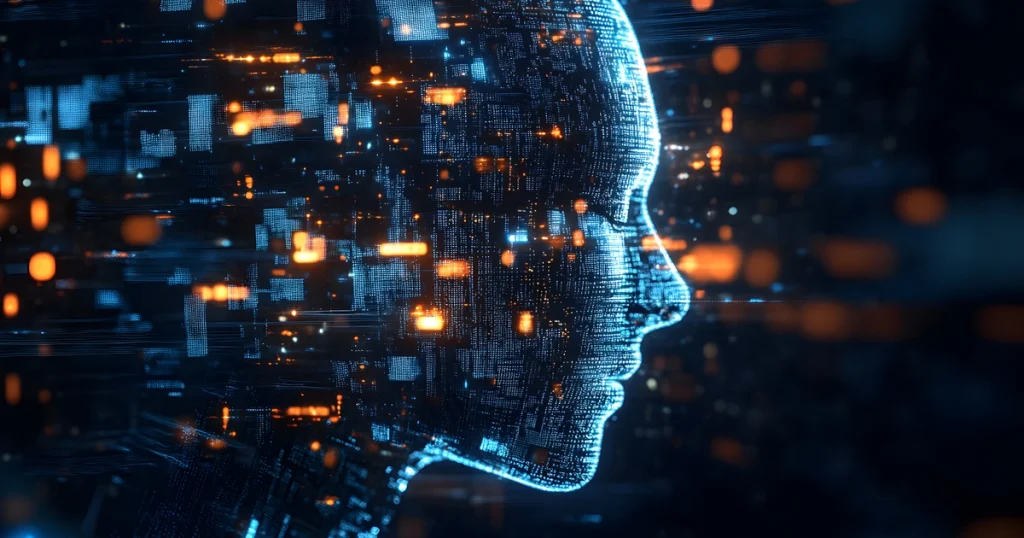
Historical Background of the Manhattan Project
ordinalduring World War IIThe U.S.A. is,A-bomb developmentWe have embarked on an unprecedented national project called This isThe Manhattan Project.It is. The plan had a profound impact on the world by linking scientific and technological advances to national security.
During the Great War, the Manhattan Project was funded with huge sums of money,Scientific and technological progress on a national scalewere advanced. This temporarily increased the price of science and technology, but more thanContribution to national securityThe Manhattan Project is considered to have been significant. The Manhattan Project became a symbolic example of the U.S. government recognizing the potential of science and technology and its impact on national security, and committing resources on a national scale. The project brought together a diverse group of scientists, engineers, technicians, and other specialists to promote advanced technological development.
As a result, the world's first atomic bomb was developed, changing the face of warfare. And now,AI Technologyschool (e.g. of ikebana)New "Manhattan Project"It is positioned at the center of the national strategy as a
The Fate of Nations in the Hands of AI Technology: The Industrial Revolution and the Frontiers of Military Competition
AI-technologyhas the potential to bring revolutionary change to all industries, including healthcare, manufacturing, finance, and transportation. From self-driving cars to medical diagnostics to financial transactions, AI will extend human capabilities and improve the efficiency of society.
On the other hand, AI technology isPossibility of military useIt is also attracting attention in Countries, including Russia, are undergoing efforts to utilize AI in missile guidance systems and surveillance technologies, and there are concerns that this innovation will change the military balance. Furthermore, AI has the potential to dramatically improve the autonomy and accuracy of weapons, directly leading to the development of new combat techniques and strategies.
Under these circumstances, the evolution of AI technology is more than just the advancement of tools,AI develops AI."The signs are that we are heading toward a new phase called "the future of AI. In this vision of the future, the countries and organizations that develop the most advanced AI first will be the ones that will be militarily and economicallyPotential to establish overwhelming superiorityThere is a Therefore, the speed and scale of AI technology development is competingInternational competition intensifiesI am doing it.
In addition, the supply of hardware essential for AI development, especially high-performance GPUs and special semiconductors, is an important factor that determines the competitiveness of each country. For this reason,Export controls on strategic componentsare being discussed, pointing out the need to tighten restrictions to prevent certain technologies from leaking out to competing countries. The U.S., Japan, and other countries are attempting to protect their technological advantages by controlling the export of such components.
AI-technologyare in the general industrial and military sectors.Potential for revolutionary changeThe intensification of international competition and export restrictions on key components have led to aStrategies for securing superiorityIt is attracting attention as a
What is the role of the Manhattan Project in the competition against China?

Ensure competitive advantage over China
during (a certain time when one did or is doing something)countryis investing heavily in AI technology development in an attempt to catch up with and overtake the United States. According to the U.S.-China Economic and Security Research Commission, China is aiming for strategic dominance in both military and economic aspects of AI technology development, and its trend may directly affect the U.S. national security, as AI technology contributes not only to economic growth but also to strengthening military power,assembleFor Merica, competition with China iscountrya matter of life and death for the familyThe first two are the following.
during (a certain time when one did or is doing something)countryHa,countryActively promote AI technology development as a house strategyand provides investment and policy support at the national level. In particular, it is outpacing the U.S. in the development of facial recognition technology and surveillance systems, since AI technology also plays an important role in the military sector,during (a certain time when one did or is doing something)Concerned that it will contribute to strengthening the country's militaryThe AI version of the Manhattan Project is a strategic effort to win this competition.
U.S. Economic Security and Its Implications
AI-technologyschool (e.g. of ikebana)keystone of economic securityand its impact is far-reaching. Specifically, the AI-inducedIncreased productivitywill determine national competitiveness, and automated driving, precision medicine, and otherNew Industry Creationwill transform the economic structure. The U.S. Congress has recommended strengthening AI cooperation between the government and the private sector, especially in semiconductor design and cloud infrastructure.Emphasis on securing competitive advantage with China in key technologiesI am doing this.
AmericaHa,Maintain global influence through AI-driven economic transformationWe are working to maintain our position as the world's largest manufacturer of financial products and services. For example, we aim to strengthen our domestic production base through AI-driven manufacturing innovation and to secure leadership in international settlement systems through AI-based financial technology. At the same time, through the development of AI-powered unmanned weapon systems and advanced command and control systems,Also pursuing military advantagesThese efforts have resulted in the establishment of a new company, the "Mazda Global Fund" (MFG). Through these efforts,The U.S. maintains global leadership in both economic and military affairs in the AI ageThe company is trying to
President Trump's Involvement and Recommendations

Relevance of AI Technology to Trump's Policies
7th note in the diatonic scale (used in key names, etc.)President Rump.was one of the first to recognize the importance of AI technology and toPositioned as "America's Future"He was the first to promoted under his administration.American AI Initiative.Ha,Accelerate AI development on a national scaleThe program is a strategic program to promote AI research through increased government funding, strengthen AI-related educational programs, and establish guidelines to ensure the ethical use of AI. The pillars of this initiative were to promote AI research through increased government funding, strengthen AI-related educational programs, and establish guidelines to ensure the ethical use of AI.
In addition, Trump hasAI technology is of paramount importance in competition with Chinaand advocated new initiatives for the U.S. to take the lead. In particular, he emphasized the advantages of AI technology in areas directly related to national security and economic competitiveness,Central to national strategyThe company has set its sights on the
What are the specific recommendations from the committee?
7th note in the diatonic scale (used in key names, etc.)rump administrationestablished a committee of experts to effectively promote the development of AI technology. This committee made the following specific recommendations, which were reflected in the policy
- Increased government funding for AI technology developmentAccelerate the speed of research and development and support a wide range of fields from basic to applied technology.
- Enhancement of AI education programsThe company is also promoting the enhancement of educational curricula and training to develop future AI specialists.
- Develop guidelines for the ethical use of AI technology: Develop a code of ethics to minimize misuse of AI technology and social risks.
In addition, the committee analyzed in depth the impact of AI technology on society. As a result, it concluded that there is an urgent need to create norms for the safe and responsible use of AI technology,Establishment of Ethics Committeeand other suggestions.
Trump's policy is not just to view AI technology as a tool for industrial revolution, but also to make itStrategic assets that determine the fate of a nationIt is noteworthy in that it positions the U.S. as the "world's leading global market leader in this field. It is particularly noteworthy in that it stresses the importance of technological competition with other countries and regulation in order for the U.S. to maintain its hegemony in this field.
The Impact of AI's Version of the Manhattan Project in Japan
AI Development of Japanese Companies and International Competition
Present,day (of the month)(somebody's) sideschool (e.g. of ikebana)AI Technology DevelopmentIn,Pointing out that we are lagging behind the U.S. and China.The two countries have been In particular, whereas both countries are strategically promoting AI technology on a national scale,Japanese efforts are mainly led by the private sector.andLack of state support is evident.It is. However, Japanese companies have world-class technological capabilities developed in fields such as automobiles, home appliances, and robotics. Integrate AI into these fields,Strengthening competitiveness is an important issue directly related to Japan's economic growth.It is.
For example, the automotive industry is developing self-driving cars and AI-based safety support systems. Toyota and Nissan are investing heavily in R&D for next-generation vehicles that utilize AI. The manufacturing industry is also facing the challenge of realizing smart factories that utilize AI, which is expected to improve productivity and quality control.
On the other hand, as a challenge for Japan,Lack of AI talentandStrict regulations regarding the use of dataIn the development of AI human resources, there is an urgent need to expand specialized education, especially AI programs at universities and graduate schools targeting the younger generation, as well as support for companies to reskill their employees. In addition, for companies to utilize AI effectively,Deregulation is required to promote the use of data while taking into account the protection of personal information.
Technology adoption and potential economic benefits
AIntroduction of I-Technologyis a JapanesePotential to fundamentally change industrial structureAI has the potential to be a powerful tool in the future. In particular, AI is expected to be used as a factor to enhance the competitiveness of companies by increasing productivity, developing new products, and improving customer service. For example, the automation of demand forecasting and inventory management through AI will dramatically increase efficiency in the manufacturing and retail industries.
Further,AI technology can also help solve social issuesThe use of the system will be particularly noteworthy in Japan's aging population. Of particular interest are applications in the nursing care and medical fields in Japan, where the population is aging. In the nursing care field, AI-equipped robots can assist and watch over the daily lives of the elderly, thereby compensating for the shortage of manpower and potentially improving the quality of services. In the medical field, AI will contribute to more efficient image diagnosis and new drug development, leading to lower medical costs and improved accuracy of treatment.
However,Introduction of AIin order toSocial and ethical issuesIt also entails the need to carefully consider the transparency of AI decision-making and the protection of privacy, as well as its impact on the labor market. In particular, the government should actively support AI technology and promote regulatory reform and policy centralization if Japan is to keep up with global competition.
Evolution of AI Technology and Reactions of the International Community
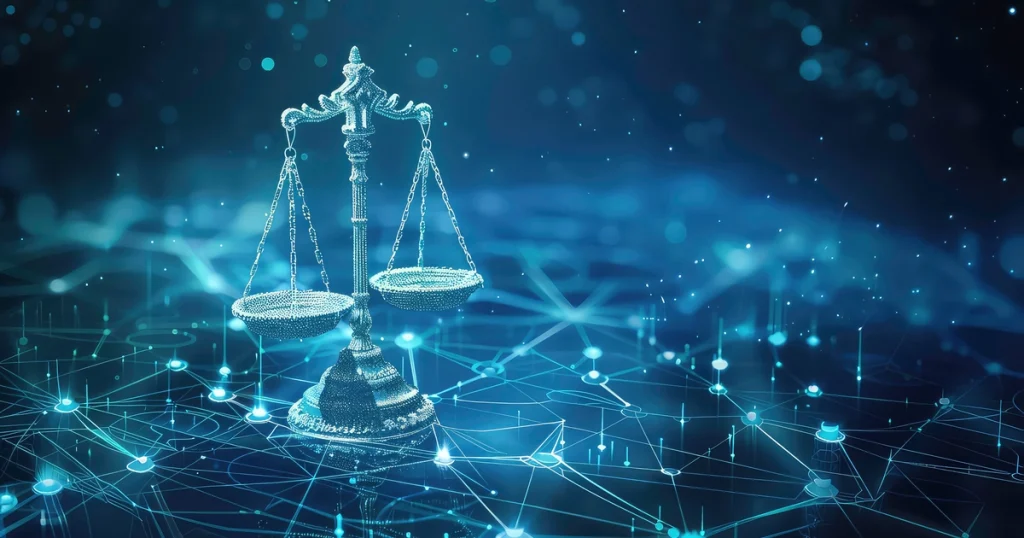
AI Technology and International Competition
AI technology is now positioned as an important area that will determine the fate of nations,Fierce competition, especially in the U.S., China, and the EUis unfolding. According to a report by the U.S.-China Economic and Security Research Commission, the advancement of AI technology is a major factor influencing economic and military power, and countries are making huge investments to promote it as a national strategy.
For example, China is focusing on state-led surveillance technology and military AI, and is outpacing the U.S. in facial recognition and quantum AI technology. Meanwhile, in the U.S., Google and Microsoft are driving cutting-edge AI research and the government is supporting them; the EU is trying to establish ethical leadership through its AI regulatory laws, with an emphasis on data protection.
Such competition goes beyond mere technological development,AI human resources, big data collection, and international regulatory frameworksThis has spread to the struggle over In particular, while the U.S. attracts the best brains from around the world through visa issuance and expanded research funding, China is strengthening its domestic education system and investing heavily in AI education.
International Regulations on AI and their Impact
With the rapid evolution of AI technology, its use createsEthical Issues and Social Implicationshas been the subject of international debate. While issues such as invasion of privacy, loss of jobs, and military use are being highlighted,Need to establish an appropriate management and regulatory frameworkis increasing.
For example, plans are underway in the EU to enact an AI Regulation Act (Artificial Intelligence Act) to classify and regulate AI technologies according to their risk level. The law takes a comprehensive approach, imposing strict requirements for high-risk AI (e.g., surveillance technologies and adoption systems) while taking measures to promote development for low-risk technologies. The U.S., on the other hand, is looking for regulations that emphasize market flexibility but also focus on ensuring transparency and fairness for companies.
Also, what are the international regulations for AI technology,Data security and privacy protectionNot only does AI decision making bringFairness and TransparencyThe focus is also on ensuring In particular, there is a need for "accountability" to prevent the risk of AI algorithms promoting bias.
In addition, there are serious concerns surrounding the use of AI in the military sector. For example, the regulation of autonomous weapon systems (robotic weapons) is under discussion at the United Nations, but no concrete agreement has been reached due to divergent opinions among major countries. In particular, the risk of autonomous AI weapons malfunctioning or causing ethical dilemmas is a major concern in the international community.
Future Prospects and Necessary Strategies
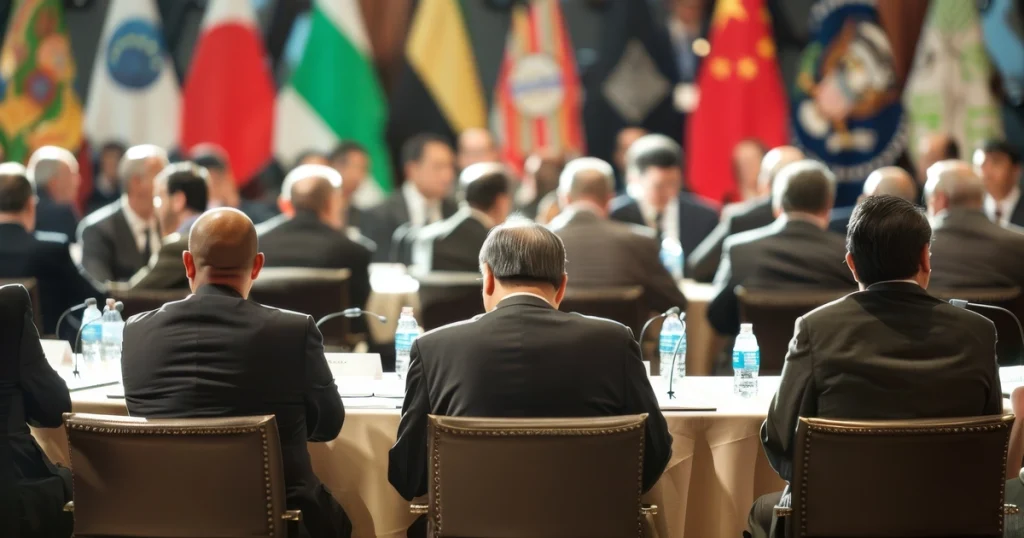
Specific plans for 2025
AI technologies are expected to continue to evolve and have a significant impact on society. Countries need to strategically promote the development of AI technologies and take measures to minimize their impact on society. In addition, as AI technologies evolve, Russia, China, and other countries are increasingly using AI for military technology, and countries including the U.S. need to develop strategies to prevent technology transfer through economic sanctions and tariff policies.
The evolution of AI technology has the potential to significantly change human life. At the same time, however, there are concerns about the misuse of AI technologies and ethical issues. Therefore, countries need to develop strategies to properly manage the development and use of AI technologies and deepen the discussion throughout society.
Importance of cooperation between scientists and companies
The AI version of the "Manhattan Project" is a national strategy that demonstrates the need for society as a whole to deepen discussion, understand its impact, and take appropriate measures. The development and use of AI technologies are fraught with ethical issues, social impacts, international cooperation, and other challenges. Therefore, various actors, including governments, companies, and civil society, need to work together to establish guidelines for the development and use of AI technologies and establish appropriate management systems.

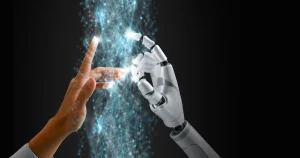

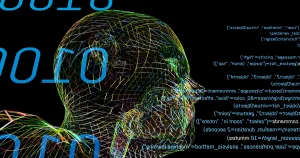
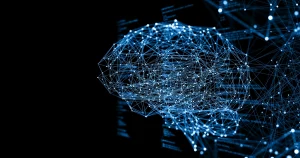
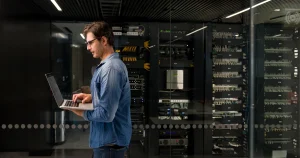
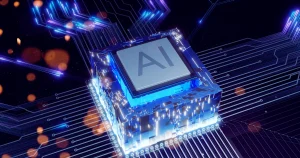

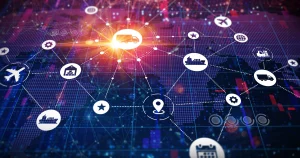


Comment